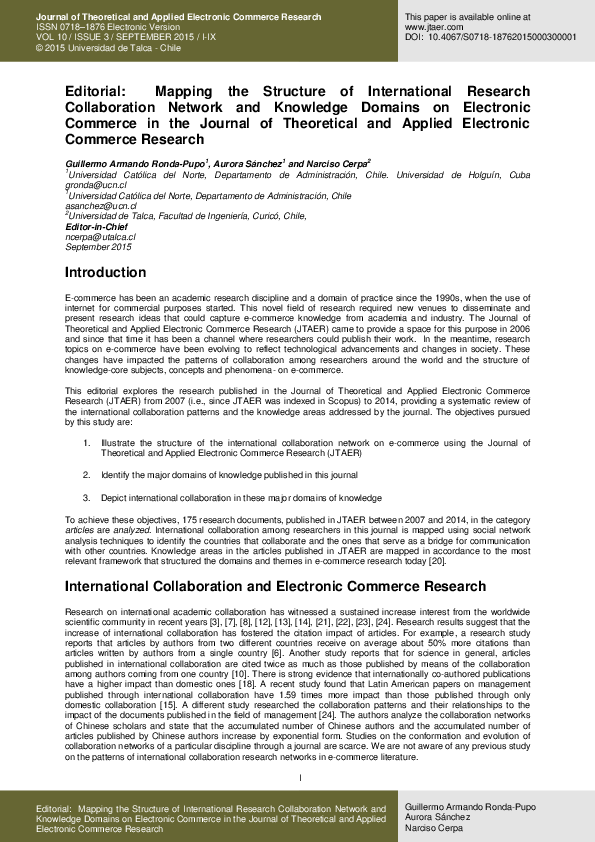Coordination of Online Shopping Supply Chain Considering Fresh Product Preservation Efforts and Cargo Damage Costs
IF 5.1
3区 管理学
Q1 BUSINESS
Journal of Theoretical and Applied Electronic Commerce Research
Pub Date : 2024-05-31
DOI:10.3390/jtaer19020068
引用次数: 0
Abstract
To reduce the losses caused by insufficient preservation efforts during transportation, the preservation effort level has been the focus of research. In the fierce competition of online sales, it is particularly important to reduce the cost of damaged goods by improving the level of preservation efforts. Therefore, according to Stackelberg game theory, this article establishes five decision-making models and incorporates the damage rate and preservation effort level into the research. Finally, this article coordinates the online shipping supply chain (SC) through a joint contract. After comparing and analyzing the model results, research has found that: (1) in centralized model, the level of preservation effort reaches its optimal level and the system benefit is maximized; (2) under third-party logistics (TPL) leading decision-making, the different bearers of cargo damage costs will not affect the profits of both parties and the system; (3) among the four decentralized models, the level of preservation efforts and system profit are highest when the decision is led by online store and TPL bears the cost of damaged goods; and (4) under a given sharing ratio, when the logistics service quotation satisfies a certain range of condition, the online shopping SC can achieve Pareto improvement. This paper studies the differences and reasons for decision models in the supply and demand relationship between online stores and TPL, which provides fresh product e-commerce decision-makers with a theoretical basis.考虑到生鲜产品保鲜工作和货物损坏成本的网购供应链协调
为了减少运输过程中保鲜力度不够造成的损失,保鲜力度一直是研究的重点。在激烈的网络销售竞争中,通过提高保鲜力度来降低货物损坏成本显得尤为重要。因此,本文根据斯塔克尔伯格博弈论,建立了五个决策模型,并将损坏率和保全努力程度纳入研究范围。最后,本文通过联合合同协调在线运输供应链(SC)。在对模型结果进行比较和分析后,研究发现:(1)在集中模型中,保全努力水平达到最优,系统收益最大;(2)在第三方物流(TPL)主导决策下,货损成本的不同承担者不会影响双方和系统的收益;(3)在四种分散模式中,由网店主导决策、TPL 承担货损成本时,保全力度和系统收益水平最高;(4)在给定分担比例下,当物流服务报价满足一定范围条件时,网购 SC 可以实现帕累托改进。本文研究了网店与 TPL 供需关系决策模型的差异及原因,为生鲜产品电商决策者提供了理论依据。
本文章由计算机程序翻译,如有差异,请以英文原文为准。
求助全文
约1分钟内获得全文
求助全文
来源期刊
CiteScore
9.50
自引率
3.60%
发文量
67
期刊介绍:
The Journal of Theoretical and Applied Electronic Commerce Research (JTAER) has been created to allow researchers, academicians and other professionals an agile and flexible channel of communication in which to share and debate new ideas and emerging technologies concerned with this rapidly evolving field. Business practices, social, cultural and legal concerns, personal privacy and security, communications technologies, mobile connectivity are among the important elements of electronic commerce and are becoming ever more relevant in everyday life. JTAER will assist in extending and improving the use of electronic commerce for the benefit of our society.

 求助内容:
求助内容: 应助结果提醒方式:
应助结果提醒方式:


